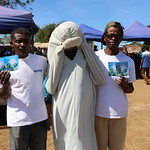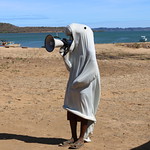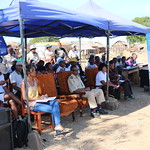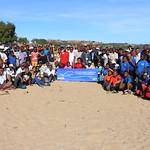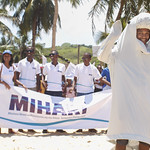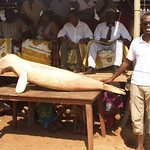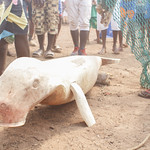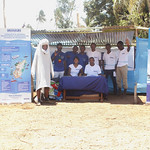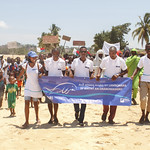Fisher knowledge, awareness and behaviour change for the conservation of dugongs and seagrass using the Mihari network of Locally Managed Marine Areas in Madagascar (MG2).
Madagascar
$88,992
MG2 aims to support dugong and seagrass conservation efforts throughout Madagascar by actively collaborating with the Mihari network, Madagascar’s national network of Locally Managed Marine Areas. The project will work closely with the Mihari network to collect data and build the capacity of its 100+ members for monitoring of dugong populations.
The data gathered will provide information on the status of dugongs and seagrass across Madagascar’s LMMA network, and will highlight areas for greater management support. Baseline information will be gathered and a broad national assessment of the status of seagrass and dugongs completed through regional and national LMMA forums to inform the location of more in-depth participatory monitoring in LMMAs that are highlighted as potential hotspots for conservation.
Methods and training materials for participatory mapping of seagrass and dugong areas will be developed, and training disseminated throughout the Mihari network of locally managed marine areas (LMMAs). The Mihari network will be used to raise awareness of, and collect information concerning, both dugongs and seagrass habitats in the Malagasy coastal zone, whilst also serving as a conduit for positive social change with respect to seagrass and marine biodiversity conservation.
MG2 will also investigate long-term sustainable financing mechanisms to provide further support to LMMAs and the Mihari network to ensure that work achieved during this period is not lost.
Deliverables
- Build capacity for dugong and seagrass monitoring via the Mihari network.
- Gather broad-scale information to assess the national status of seagrass and dugongs.
- Generate and map information about dugongs and seagrass distribution/status for at least four LMMAs, identifying dugong hotspots.
- Provide training to promote participatory monitoring at conservation hotspot sites.
- Promote education and raise awareness through targeted campaigns in key LMMA sites.
- Support local legislation and activities protecting seagrass and dugongs.
